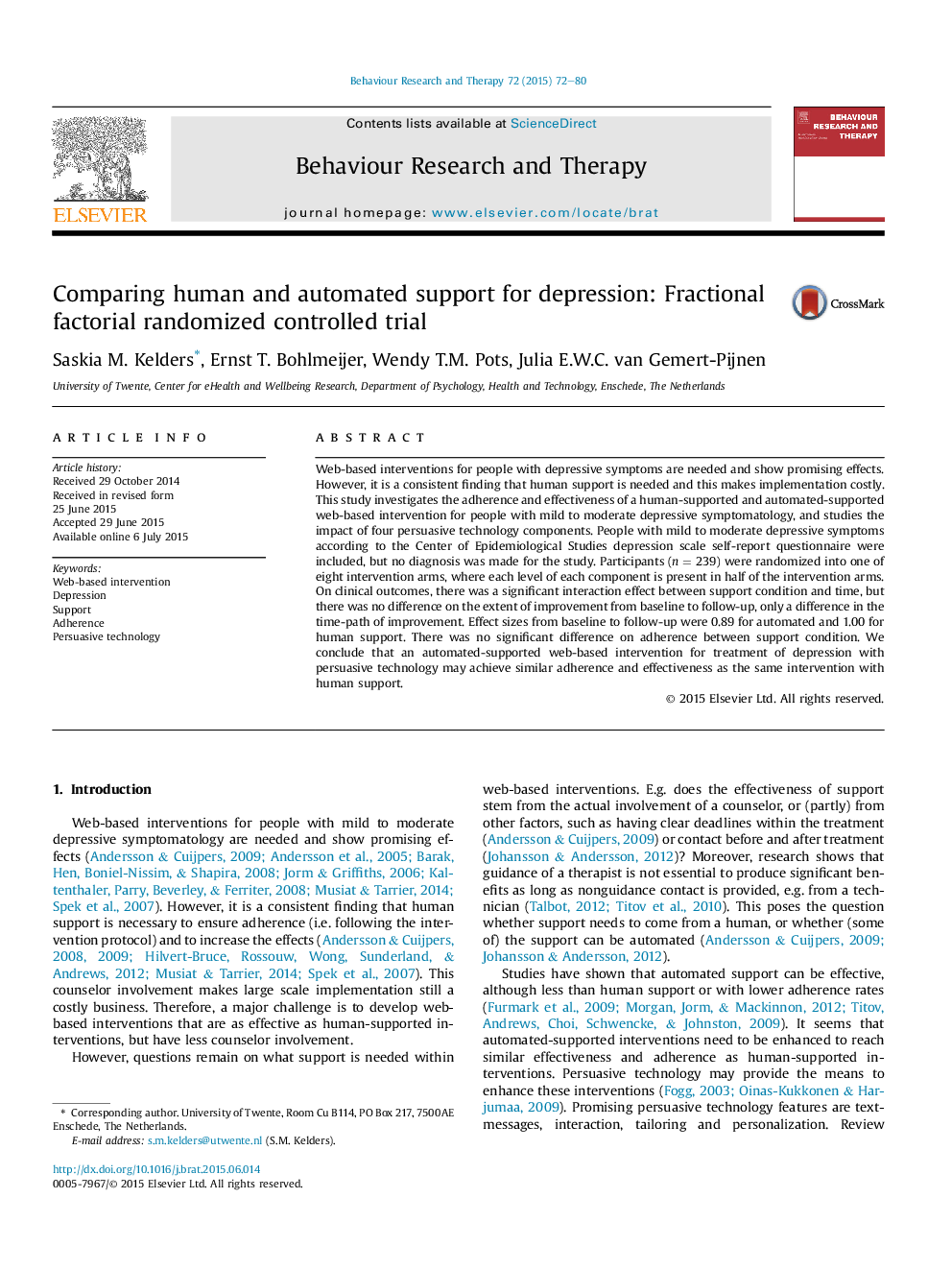| Article ID | Journal | Published Year | Pages | File Type |
|---|---|---|---|---|
| 7262263 | Behaviour Research and Therapy | 2015 | 9 Pages |
Abstract
Web-based interventions for people with depressive symptoms are needed and show promising effects. However, it is a consistent finding that human support is needed and this makes implementation costly. This study investigates the adherence and effectiveness of a human-supported and automated-supported web-based intervention for people with mild to moderate depressive symptomatology, and studies the impact of four persuasive technology components. People with mild to moderate depressive symptoms according to the Center of Epidemiological Studies depression scale self-report questionnaire were included, but no diagnosis was made for the study. Participants (n = 239) were randomized into one of eight intervention arms, where each level of each component is present in half of the intervention arms. On clinical outcomes, there was a significant interaction effect between support condition and time, but there was no difference on the extent of improvement from baseline to follow-up, only a difference in the time-path of improvement. Effect sizes from baseline to follow-up were 0.89 for automated and 1.00 for human support. There was no significant difference on adherence between support condition. We conclude that an automated-supported web-based intervention for treatment of depression with persuasive technology may achieve similar adherence and effectiveness as the same intervention with human support.
Related Topics
Health Sciences
Medicine and Dentistry
Psychiatry and Mental Health
Authors
Saskia M. Kelders, Ernst T. Bohlmeijer, Wendy T.M. Pots, Julia E.W.C. van Gemert-Pijnen,
